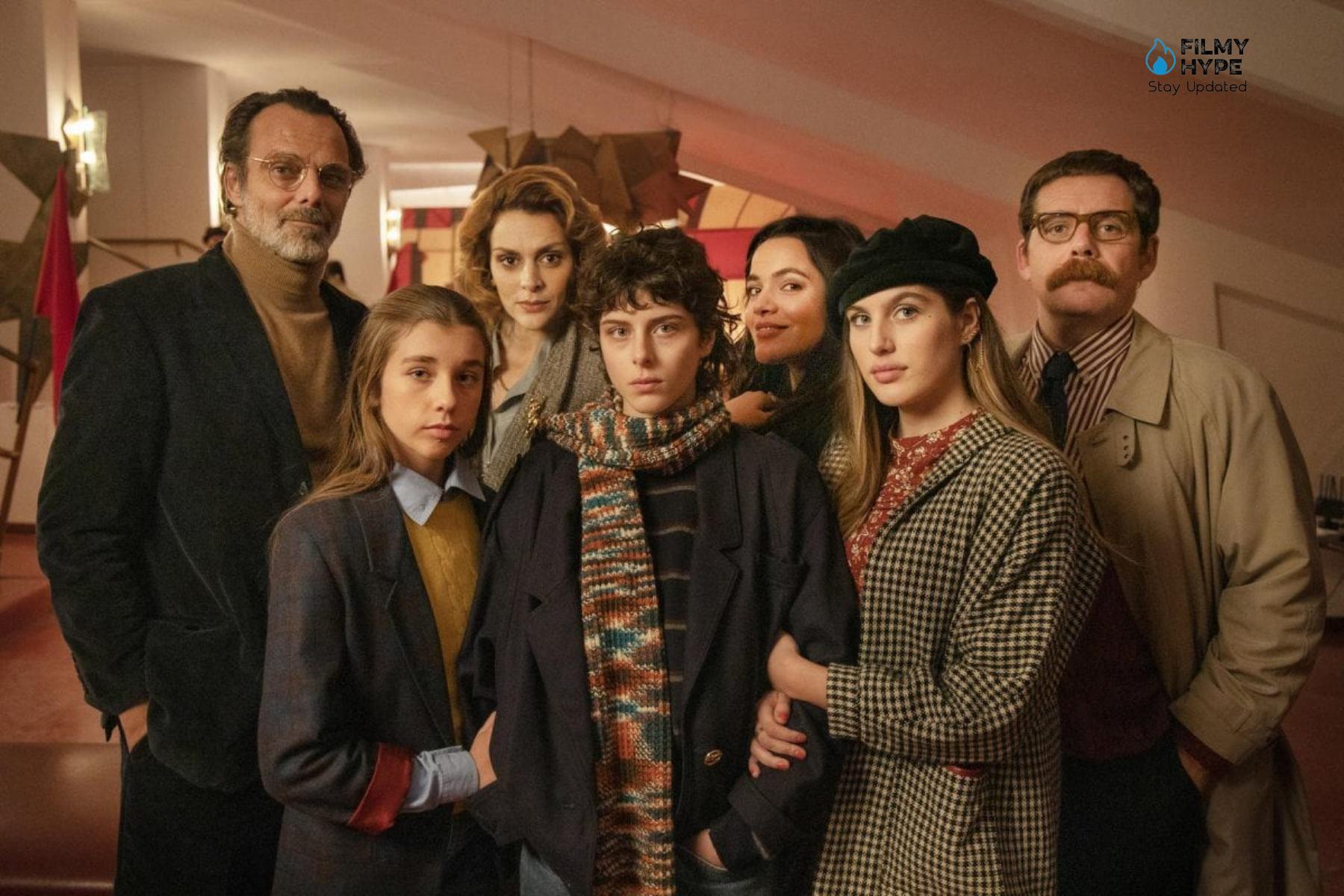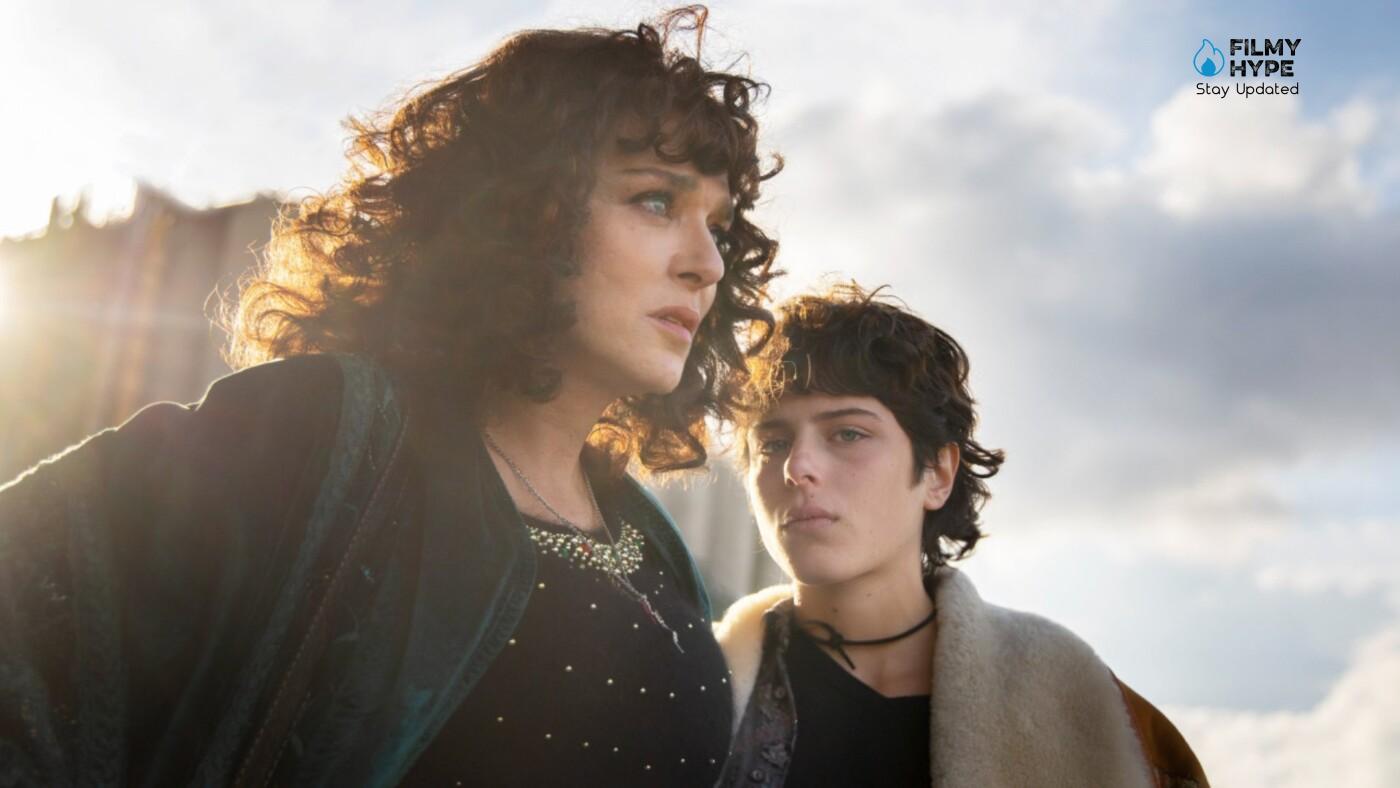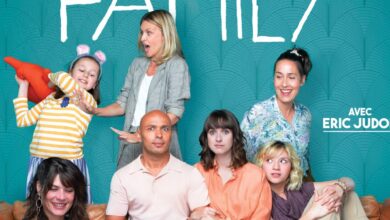The Lying Life of Adults Review: Netflix Series from The Novel by Elena Ferrante
Cast: Giordana Marengo, Valeria Golino, Alessandro Preziosi, Pina Turco, Raffaella Rea
Director: Edoardo De Angelis
Streaming Platform: Netflix
Filmyhype.com Ratings: 3.5/5 (three and a half stars)
In this chaos of emotions, a beautiful, successful series arrives on Netflix, The Lying Life of Adults, which transfers Ferrante’s latest novel, published in 2019 for and/or editions, into six episodes. When we are confronted with the adaptation of a literary work by Elena Ferrante, we already know that we have to deal with different sensations and moods. On the one hand there is the curiosity to see “in the flesh” those characters who strike us so much on paper, so rich in facets, described in a vital way and with imaginative words. On the other hand, there is the fear (sometimes well-founded, others less so) of seeing history ruined. That physiological fear of being let down and let down by something that doesn’t live up to the written page.

The team that brought this project to life is excellent. There is Edoardo De Angelis directing and there is Laura Paolucci, Francesco Piccolo and De Angelis himself writing. Finally, an apt cast in every role, starting with the young protagonist Giordana Marengo, and ending with the amazing Valeria Golino, who plays the role of Aunt Vittoria. So here is the review of The Lying Life of Adults, of which we saw the first two episodes in preview, from January 4 on Netflix.
The Lying Life of Adults: The Story Plot
In 1990s Naples, the brazen and audacious Aunt Vittoria helps her niece explore a different side of the city and annoys the girl’s strict parents. Naples, 90s. Giovanna is a teenager like many others. Indeed not. Because her parents, Andrea and Nella, both teachers, accuse her of being ugly. Worse, to look more and more like Aunt Vittoria, a terrible ghost that has been hovering for years in that upper-class house, menacing and scandalous. Still, fascinating. The continuous comparison pushes Giovanna to want to meet the woman, with whom her father hasn’t spoken since time immemorial due to a fierce quarrel. To do this, the girl must cross the city, cut it in two, abandon the certainties of orderly life and plunge into chaos.
The meeting with Vittoria is explosive for Giovanna. The aunt deconstructs Giovanna’s orderly world piece by piece, inviting her to open her eyes to her parents, light years away from the image of a perfect couple that passes into her world. Inside the girl’s heart, then, a click is triggered that initiates an inevitable transformation, in her body and thoughts. Because of that curly-haired and passionate woman, capable of throwing away an entire life just for love, she shows the girl that she can choose who to be her. That nothing is preordained. And that irrationality is the key to giving birth to a new life. Giovanna thus finds herself face to face with the hypocrisy of adults and she finds a way to love her.
The Lying Life of Adults Review and Analysis
Elena Ferrante viscerally loves her protagonists. And it is no coincidence that we mention the tetralogy of my brilliant friend, perhaps one of the most beautiful, complex and feminine works of fiction. The Giovanna of The Lying Life of Adults resembles Lila and Lenù, she shares some traits such as a certain disenchantment, sweetness, and some flashes of ferocity. Differently, her story is immortalized in a single, extraordinary moment of restlessness and (re)birth, adolescence that we still don’t know where and what she will bring. Inevitably, then, the series (and the book) are less powerful and enthralling than My Brilliant Friend, but equally feverish in showing the protagonist’s search for identity. A girl who sees her world collapsing little by little, who discovers the lying life of her adults.

The fulcrum of the story is certainly Giovanna (Giordana Marengo, very good), but her figure overlaps perfectly with that of Vittoria. So much so that it is Marengo herself who plays the aunt when she was young. An apt solution that makes good the power of these two women, one unripe and in the process of being defined, the other reckless and passionate, vital and tragic. The curly hair, the house turned upside down, the exaggerated make-up, and the vulgar language perfectly describes the contradictions of a heroine all belly and heart, able to give life to a parallel family with her lover’s wife and children, only in the name of love. A memorable Valeria Golino who sacrifices her natural delicacy (as every great actress knows how to do) to embody an explosive, exaggerated but kind character.
And given that art, of whatever kind, thrives on details, the musical element is another weapon used by De Angelis to tell the vitality of Naples in the 90s. The notes of Almamegretta and 99 Posse define Giovanna’s world, they illuminate it with the power of notes and words. And since inspiration can come from every little thing, together with the groups that have made Naples one of the most important European music scenes, surprisingly Peppino Di Capri also appears in the beautiful soundtrack, which perfectly closes the circle on a world of imperfect adults and looking for love, that love is not. We confess that we sang E mò e mò, just like Giovanna and her friends, in a key moment of the second episode. And in that instant, we perceived the subtle pain of a girl who discovers a truth that is difficult to accept.
There couldn’t have been a better time than the 90s to set Giovanna’s coming of age. Squeezed between the hedonism of the 80s and the futurist ambition of the new millennium, the 90s have always lived in the shadows in the story of great history. As if they were adolescents that preceded and prepared for adult life with many unknowns. Giovanna is the perfect fruit of that era, a dancer over the abyss who is afraid to jump but can’t help it.
The direction of Edoardo De Angelis is in this sense up to the situation, clean and never banal. Punctuated by many very close-ups to explore the faces of the characters (especially the female ones and we give a note of merit to Pina Turco and Raffaella Rea) who keep terrible secrets. Where the heartbeats are in the description of the popular environments, not the classic basses that we are used to seeing in Naples of the movies, but an almost dreamlike world that is found in the margins, beyond the center. A universe that we will want to know again and again because we feel that it can hold priceless treasures in store for us.
The Lying Life of Adults appears in all respects to be a black fairy tale narration, whose central nucleus is the relationship between women: Giovanna, the mad and tormented Aunt Vittoria (a Valeria Golino never so partial), Nella ( Pina Turco), Giovanna’s mother, and Costanza (Raffaella Rea) who talking to each other for the very first time, probably discover that they have no need for men in their lives, on the contrary, that they have been drowned by their presence, undertaking a decisive, radical and painful path of discovery and rebirth capable of giving them a new life and identity.

If in terms of the screenplay Piccolo and Paolucci seem to investigate the lies of marriage by sticking to absolutely daily and current reality, therefore bitterly realistic, made up of looks, unequivocal gestures constantly hidden and words not spoken but somehow inevitably confessed and shouted (recalling that Mucciniano trend now cult of L’ultimo Bacio, albeit deeply immersed in the Neapolitan context), on the directing front Edoardo De Angelis instead pursue the model that has always belonged to him, that of the dreamlike, surreal, magical and suspended fable.
Ultimately what this series wants to tell is the profound and total mutation of a teenager like Giovanna, who, although cold and cynical, finds herself too soon catapulted into an adult reality made up of lies, betrayals and illnesses capable of giving life to a new creature, generated by the shameless face of sex as a necessary and growth experience. That experience finally makes Giovanna ready for the world in every facet of her and perhaps even for her departure from the toxic everyday life that has made her prisoner up to that moment.
The Lying Life of Adults Review: The Last Words
Perhaps it is too early to understand where the series will arrive, the vote is a little lower than it should be for this alone, but the first two episodes show enormous potential. And we can’t do anything but wait to see Giovanna’s journey of self-discovery with curiosity and participation. The one signed by De Angelis, Piccolo and Paolucci is a great series, but like all great series it is mature, painful, reflective and powerful, so much so that it runs the risk of alienating that important slice of the public in search of laughter, lightness and of banality. Here nothing is trivial, but it doesn’t mean that laughter doesn’t come, of course… still bitter, but it’s laughter, nonetheless.






